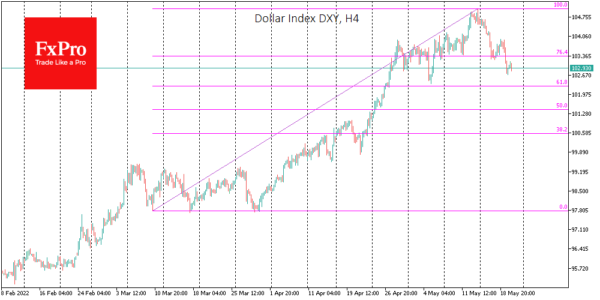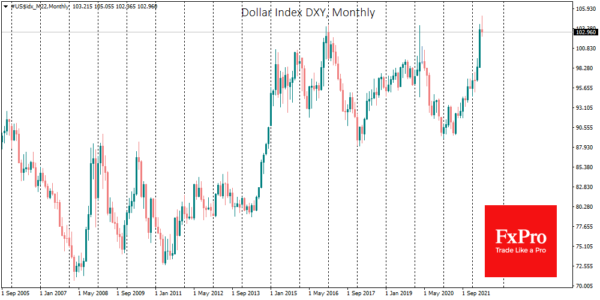The dollar in the foreign exchange market is correcting some of the gains of the past three months. The dollar index has retreated below 103 after touching 105 a week ago. The retreat of the US currency goes against a wide range of peers and several asset classes. 10-year Treasury yields, which peaked near 3.2% last week, are still declining.
Such dynamics reflect investors’ hesitation regarding the prospects for the US economy, around which recession risks are mounting. The decline in long-term bond yields indicates investors’ doubts that the Fed will be able to raise and keep rates high for a long time, and it reduces the attractiveness of investing in the dollar.
But it is also worth noting the work of other central banks, which are closing the gap between their policy and Fed sentiment by tightening their rhetoric almost daily.
However, the dollar’s weakness is contained within the framework of a correction after a tumultuous rally. Talking about a break of the short-term uptrend is only appropriate if the Dollar Index falls below 102.30, where the lows of May and the 61.8% area of the last rising momentum from the start of April are concentrated.
A break of the latest uptrend is evidence that a false break-up of the long-term resistance at 103.0, earlier this month, was achieved.
However, it has to be noted that the observed weakening of the dollar might be no more than a temporary respite for several reasons.
The pullback in yields of the Treasuries could be a technical correction after a rally like we have seen many times since the middle of last year.
So far, US monetary tightening is moving and set to move to proceed at a higher pace than the major competitors. Other DM central banks are shy to make 50 points step up and are even further away from raising the key rate by 350 points in the year to March expected from the Fed.
Concerns about the economy may be exaggerated as demand remains pretty robust and the labour market is burning, promising growth in income (respectively) and household spending.
Suppose a new round of growth follows a temporary pullback in the US currency. As we previously expected, this momentum could remain in place until 120, returning the dollar’s strength to that of the start of the millennium.


